Plant-Based Protein Sources: A Delicious Way to Build Muscle and Boost Energy
When it comes to building muscle and boosting energy, protein is essential. But what if you could achieve these goals without relying on animal products? Enter plant-based protein sources—delicious, nutritious, and effective ways to fuel your body, enhance your performance, and build muscle. Whether you’re vegan, vegetarian, or simply looking to incorporate more plant-based options into your diet, there are a variety of plant-based protein sources that offer the benefits you need. In this article, we’ll explore how these foods can help you reach your fitness goals while promoting overall health.
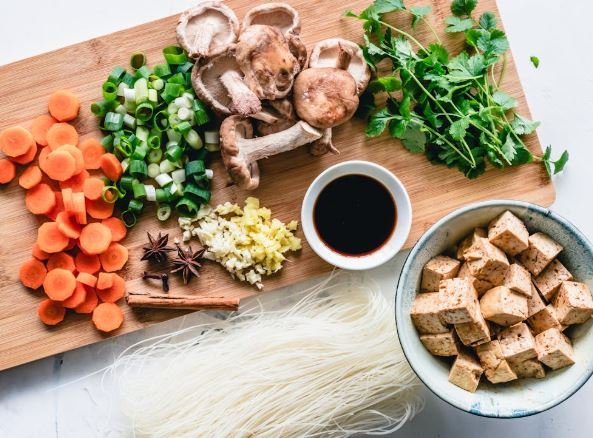
What Are Plant-Based Protein Sources?
Plant-based protein sources come from a variety of plant foods that provide your body with the necessary building blocks—amino acids—required for muscle growth, repair, and energy production. Unlike animal-based proteins, which typically contain all nine essential amino acids, many plant-based protein sources are considered incomplete proteins. However, by combining different plant-based foods, you can ensure you’re getting all the essential amino acids your body needs.
The best part? Plant-based protein sources are also packed with fiber, vitamins, and minerals, which promote overall health and help support your body’s natural energy levels.
1. Lentils: A Protein Powerhouse
Lentils are one of the most popular and accessible plant-based protein sources. Not only are they high in protein (about 18 grams per cooked cup), but they are also a great source of fiber, iron, and folate. These nutrients help your body stay energized, support muscle growth, and boost recovery after intense workouts. Lentils are versatile and can be used in soups, stews, salads, or even made into lentil burgers, providing you with a delicious way to build muscle and boost energy.
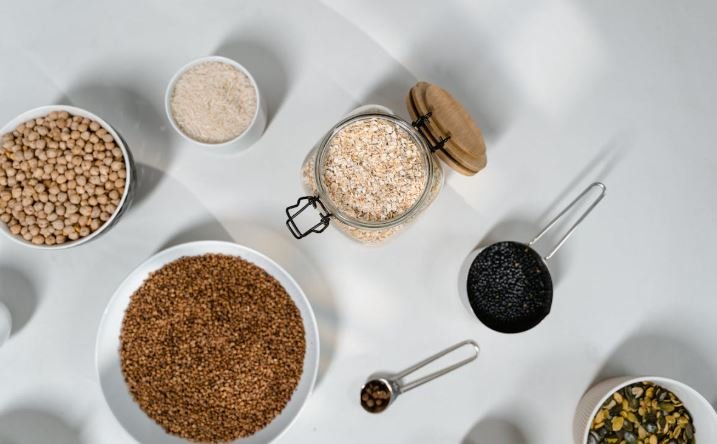
2. Chickpeas: Versatile and Packed with Protein
Chickpeas, or garbanzo beans, are another excellent plant-based protein source. With around 15 grams of protein per cooked cup, they are an excellent addition to your diet if you’re looking to build muscle. Chickpeas are also rich in complex carbohydrates, making them a great food to provide sustained energy throughout the day. From classic hummus to chickpea salads, curries, and roasted snacks, the possibilities for enjoying chickpeas are endless. Incorporating chickpeas into your meals will not only support your muscle-building efforts but also keep you energized.

3. Quinoa: A Complete Protein
Unlike many other plant-based protein sources, quinoa is considered a complete protein, meaning it contains all nine essential amino acids. This makes it an exceptional choice for anyone looking to build muscle and boost energy through plant-based foods. With approximately 8 grams of protein per cooked cup, quinoa is also rich in fiber, iron, and magnesium, which are crucial for muscle function and energy production. You can use quinoa as a base for salads, grain bowls, or as a substitute for rice, making it a versatile and powerful addition to your plant-based protein arsenal.
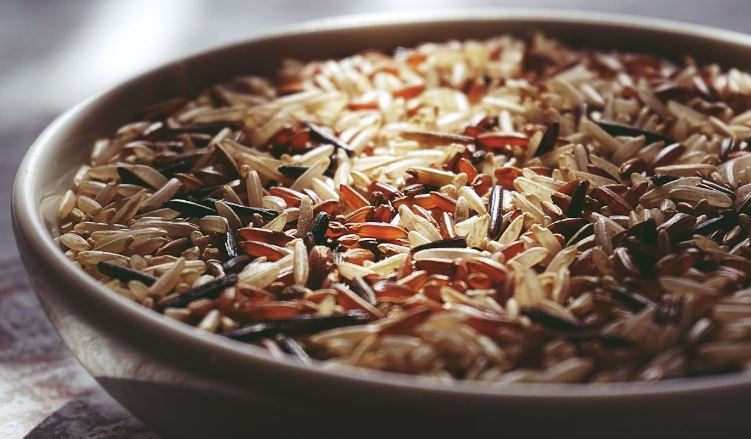
4. Tofu and Tempeh: Soy Protein Perfection
Tofu and tempeh are two of the most popular plant-based protein sources derived from soybeans. Tofu is soft and smooth, while tempeh has a firmer texture and a nuttier flavor. Both are rich in protein, with tempeh providing about 21 grams of protein per 4 ounces and tofu offering around 10 grams per 4 ounces. Both tofu and tempeh are also rich in calcium and iron, supporting bone health and energy levels. These soy-based protein sources are incredibly versatile and can be used in stir-fries, sandwiches, salads, or even blended into smoothies to enhance your protein intake. Adding tofu and tempeh to your meals is a fantastic way to fuel your body and support muscle development.
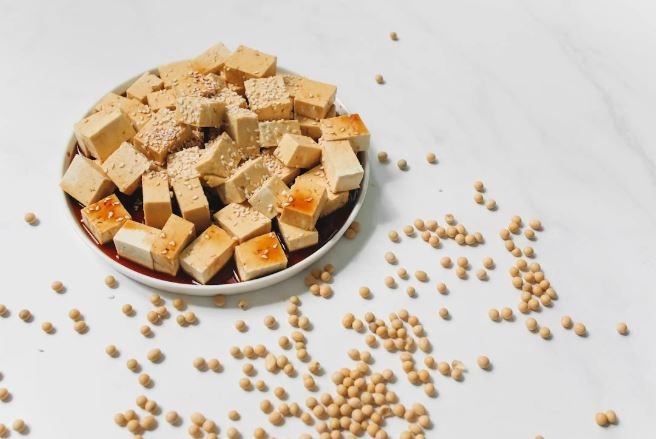
5. Nuts and Seeds: Tiny Yet Powerful
Nuts and seeds are plant-based protein sources that are often overlooked but should be part of your diet. Almonds, walnuts, chia seeds, hemp seeds, and pumpkin seeds are all excellent sources of protein and healthy fats. For example, a 1-ounce serving of almonds provides about 6 grams of protein, while chia seeds deliver around 4 grams per ounce. Nuts and seeds are also packed with omega-3 fatty acids, antioxidants, and other nutrients that support brain health and reduce inflammation. They’re easy to incorporate into your meals by adding them to smoothies, yogurt, or salads, making them a delicious and convenient way to build muscle and boost energy.

6. Edamame: Protein-Packed and Delicious
Edamame, or young soybeans, are another outstanding plant-based protein source. A 1-cup serving of edamame contains around 17 grams of protein, making it an excellent snack for muscle recovery and energy. Edamame is rich in fiber, iron, and other essential vitamins and minerals that help your body function at its best. You can enjoy edamame as a snack, toss it into salads, or stir-fry it with your favorite vegetables for a nutritious, high-protein meal.
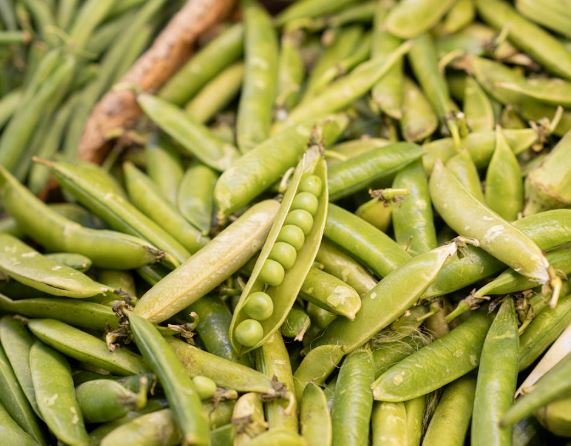
7. Seitan: A High-Protein Meat Alternative
Seitan is made from wheat gluten and is one of the highest-protein plant-based protein sources, offering around 21 grams of protein per 3 ounces. It’s often used as a meat substitute in plant-based dishes due to its chewy texture, making it a great option for vegetarians and vegans who want a protein-packed alternative to meat. Seitan can be grilled, sautéed, or added to stir-fries and sandwiches, providing a tasty and satisfying way to build muscle and boost energy levels.

8. Spirulina: A Nutrient-Dense Superfood
Spirulina is a blue-green algae that’s incredibly nutrient-dense and a powerful plant-based protein source. Just 2 tablespoons of spirulina provide about 8 grams of protein, along with essential vitamins, minerals, and antioxidants. Spirulina is often used in smoothies, energy bars, and shakes to boost protein intake and provide a natural energy boost. Including spirulina in your diet can help you meet your protein needs while supporting your immune system and improving muscle recovery.
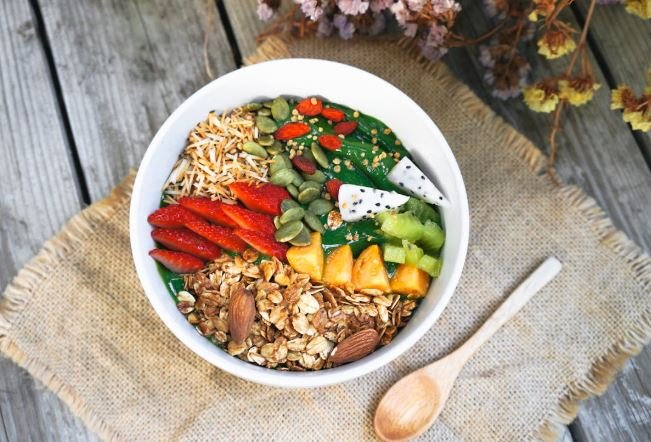
In addition to including plant-based protein sources in your diet, it’s important to get creative with how you prepare them. A variety of high-protein vegan recipes can help you make the most out of these nutrient-dense foods, ensuring you stay on track with your muscle-building and energy-boosting goals. From protein-packed bowls to savory stir-fries, there are countless delicious ways to incorporate these ingredients into your meals. To explore some tasty, easy-to-make recipes, be sure to check out our article on High-Protein Vegan Recipes, where you’ll find a variety of options to help you fuel your body and boost your performance.
Conclusion
Incorporating plant-based protein sources into your diet is an effective, delicious, and sustainable way to build muscle, boost energy, and improve your overall health. From lentils and quinoa to tofu, edamame, and spirulina, there are countless options available to help you reach your fitness goals. Not only will these plant-based protein sources provide you with the necessary nutrients for muscle repair and growth, but they’ll also keep your energy levels up throughout the day. So, don’t let your diet lack these powerful, plant-based proteins—add them to your meals and enjoy the many benefits they offer for a stronger, healthier you.



